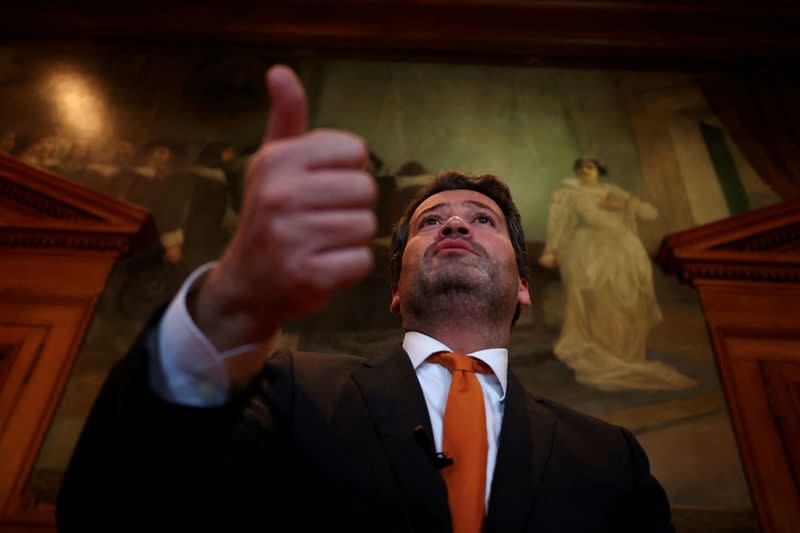Feisty Portuguese election debate dims hopes for post-poll compromises
By Andrei Khalip and Sergio Goncalves
LISBON (Reuters) - The leaders of Portugal's centre-right and far-right parties clashed in a tense debate late on Monday, dimming prospects they will find enough common ground for the former to have a stable government if he wins next month's ballot without a majority.
The Portuguese will vote in a snap election, the second in two years, on March 10 after the November resignation of centre-left Socialist Prime Minister Antonio Costa over an investigation into alleged illegalities in his government's handling of investment projects. He has denied any wrongdoing.
Neither the centre-left nor the centre-right is expected to clinch an outright majority of parliamentary seats in the ballot and analysts expect a post-election stalemate as a likely scenario, potentially leading to a repeat ballot.
An alliance led by the centre-right Social Democratic Party (PSD) of Luis Montenegro has been slightly ahead in recent opinion polls, but with little chance of governing without some form of support from the anti-establishment, anti-immigration Chega party.
"As a matter of principle, the PSD will never make a political agreement with someone who has policies, opinions, which are often xenophobic, racist, populist, excessively demagogic," Montenegro told Chega leader Andre Ventura in a televised debate.
Ventura called the PSD "the useful idiot of the left" that will "never have a majority" without support from Chega, adding that the PSD will bear the blame for any ensuing instability.
Montenegro has said that if he fails to garner an absolute majority of seats, he would potentially form a minority government. Chega would only be able to topple such a coalition if the right-wing party teamed with the left against it.
In a regional election in the Azores Islands on Feb. 4, the PSD-led Democratic Alliance landed three seats short of an outright majority and refused Chega's offer to negotiate a deal, an approach Montenegro promised to replicate at the national level.
(Reporting by Andrei Khalip and Sergio Goncalves; Editing by Sharon Singleton)

 Yahoo News
Yahoo News 

